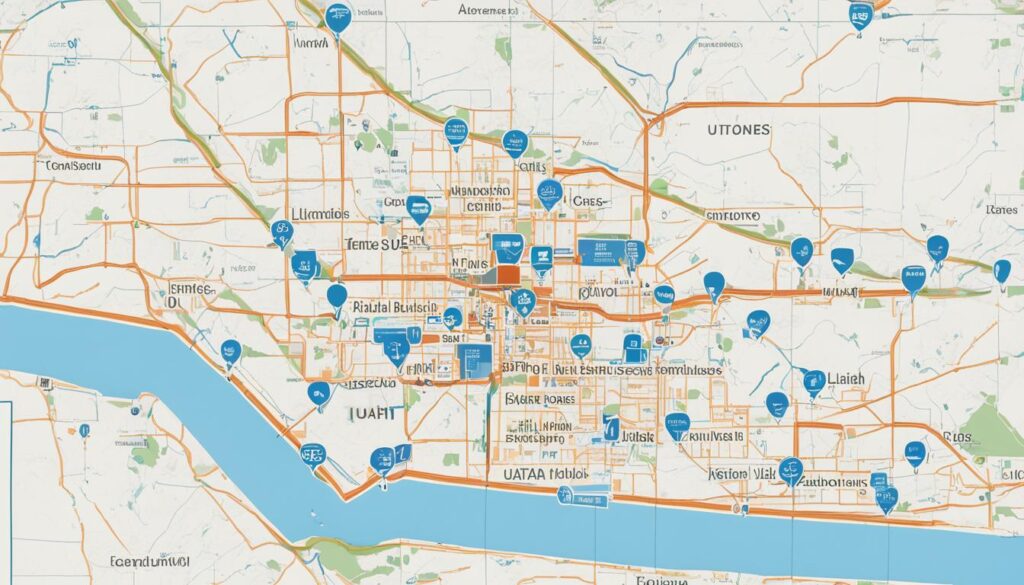Starting a business is thrilling, but knowing the legal stuff is key. You might ask about LLC business requirements and how they’re different from other licenses. Let’s make things clear and look into the perks of a limited liability company.
An LLC is a common business type that protects your personal stuff and gives you tax options. A business license, however, lets you legally run your business in a certain area. Both are important but for different reasons.
Knowing the difference between an LLC and a business license is crucial for following the law. An LLC sets up a legal structure for your business. A license lets you do business where you want.
Key Takeaways
- An LLC is a business structure, not a license to operate
- Business licenses are needed for most companies, no matter the structure
- LLCs offer personal liability protection and tax perks
- Different types of business licenses might be needed based on your industry
- Forming an LLC doesn’t mean you get a business license automatically
- Both an LLC and the right licenses help make your business legal
Understanding LLCs and Business Licenses
Starting a business means you’ll come across LLCs and business licenses. Let’s look at what they are and how they differ.
What is an LLC?
An LLC stands for Limited Liability Company. It’s a structure that protects your personal assets. It’s often chosen over being a sole proprietor because of this. LLCs mix parts of corporations and partnerships, offering flexibility in how they’re run and taxed. State-specific LLC regulations set the rules for forming and running them.
Purpose of a Business License
A business license is a permit from local governments. It lets you legally run your business in a certain area. Unlike LLCs, which are optional, most businesses need a license to operate. The rules for getting one depend on where you are and what you do.
Key Differences Between LLCs and Business Licenses
LLCs and business licenses have different roles:
- LLCs protect your personal assets and offer tax benefits
- Business licenses let you operate in a specific area
- LLC formation involves thinking about tax implications
- Business licenses focus on local rules and safety
Knowing these differences helps you make smart choices about your business and legal needs.
Is an LLC Considered a Business License?

An LLC and a business license are not the same thing. An LLC is a legal setup that protects your personal stuff. A business license lets you run a business in a certain place.
When you form an LLC, you make a new legal entity for your business. This doesn’t mean you can start operating right away. You also need to get the right business licenses and permits. Knowing the difference between an LLC and a business license is key for following the rules.
Most businesses, like LLCs, must have the right licenses. These depend on where you are and what you do. Running an LLC without the right licenses can result in fines. But, just having a business license as a sole owner doesn’t give you the same protection as an LLC.
- LLCs offer liability protection and tax benefits
- Business licenses give you permission to operate locally
- Both are usually needed for legal business activities
Even non-profits like churches might need to follow licensing laws. Churches often need business licenses even if they don’t pay taxes. Always make sure you know the local rules to stay in compliance.
LLC Formation Process and Requirements
Starting an LLC takes several steps. The process varies by state but is similar overall. It’s important to know the LLC formation process and state rules for a smooth setup.
Choosing a Business Name
Your LLC name must be unique and follow state rules. Check if the name is available at your state’s business registry. Many states require “LLC” or “Limited Liability Company” in the name.
Filing Articles of Organization
This document officially creates your LLC. File it with your state’s business division. You’ll need to provide basic company info and pay a filing fee.

Appointing a Registered Agent
Choose someone to receive legal papers for your LLC. This can be you, another member, or a professional service. The agent must have a physical address in your state.
Creating an Operating Agreement
While not always required, an operating agreement is crucial. It outlines how your LLC will run, including member roles and profit sharing. This document helps prevent future disputes.
Remember, LLC formation requirements can differ based on state-specific LLC regulations. Some states may need extra info or have unique rules. Always check your local laws or consult a professional for guidance.
Business License Requirements and Application Process
It’s key to know the business license needs for your LLC. There are many types of licenses, based on where you are and what you do. You might need a basic business license or a special permit for certain industries.
To apply for a license, you’ll need some important info about your business:
- Business name
- Employer Identification Number (EIN)
- Physical address
- Description of business activities
Licenses can cost a lot. Some home-based businesses might not need all licenses. Always check local rules to make sure you’re following them.
If you sell things, you might need a seller’s permit. This lets you collect sales tax from buyers. Remember, getting all the licenses you need can be tricky. It might help to talk to a local business expert to make it easier.
Benefits of Having Both an LLC and Proper Licensing
Creating an LLC and getting the right licenses is key for your business. An LLC protects your personal stuff from business debts. It also lets you pick how your business is taxed.
Having the right licenses is a must for legal and successful business operations. It keeps you away from fines and boosts your trustworthiness with customers and partners. Some deals or funding might need both an LLC and certain licenses.
Start by forming your LLC, then apply for the needed licenses under your LLC’s name. This makes sure you follow local laws and prepares you for business growth. By using an LLC and proper licensing, you’re making smart moves to protect your business and set it up for success.
FAQ
Is an LLC considered a business license?
What is an LLC?
What is the purpose of a business license?
What are the key differences between LLCs and business licenses?
How do I form an LLC?
What are the requirements for obtaining a business license?
What are the benefits of having both an LLC and proper licensing?
Author
-

David Nguyen is an expert in business licensing, with extensive knowledge in local and international regulations. His expertise is crucial for businesses seeking guidance on compliance and licensing strategies.
View all posts



